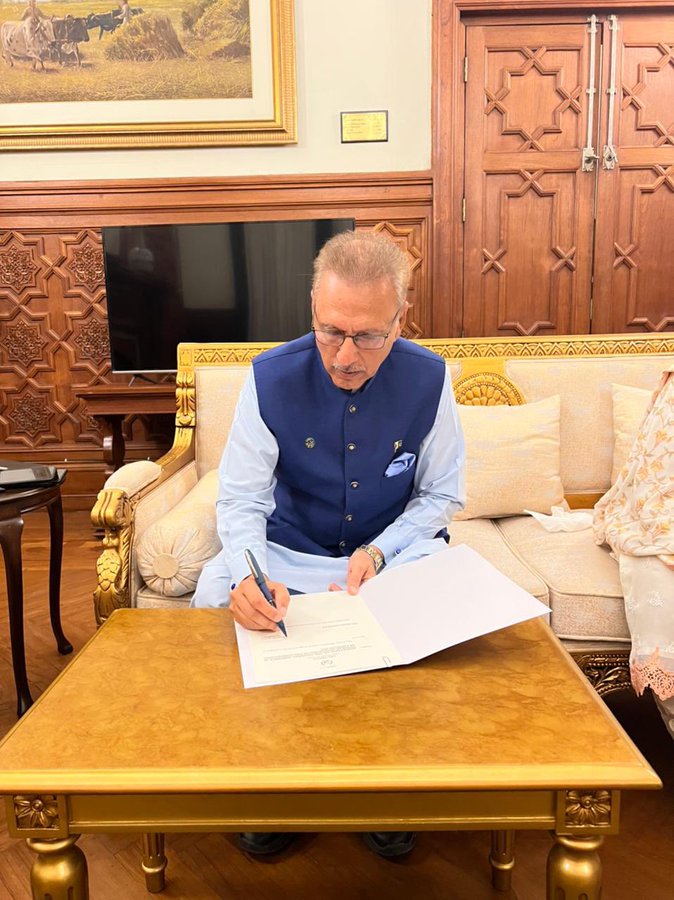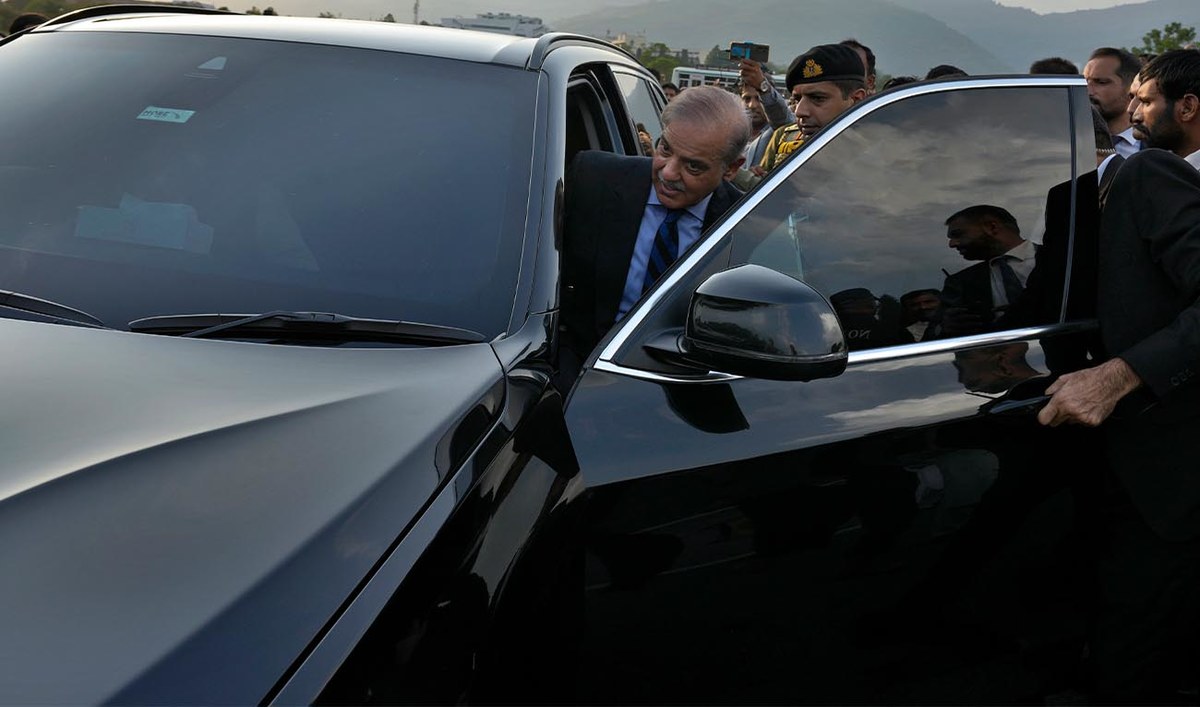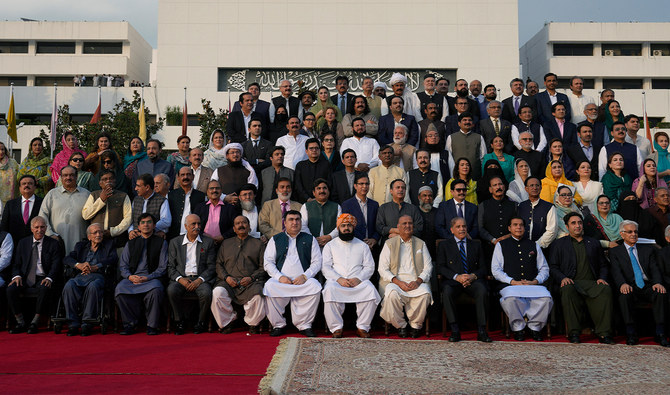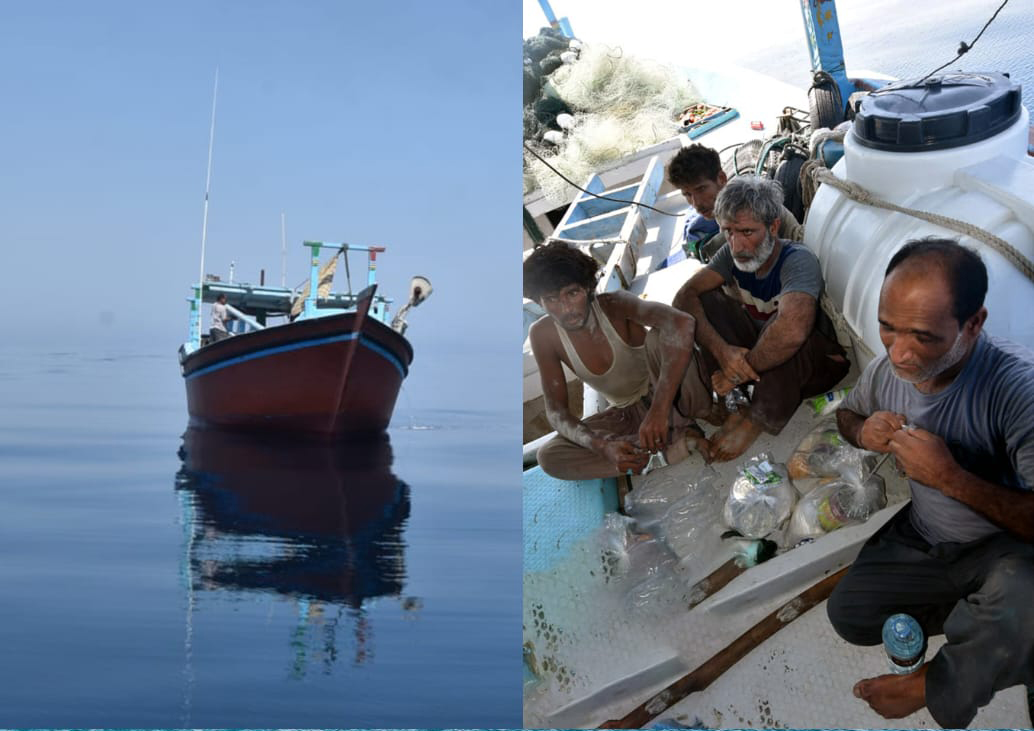ISLAMABAD: Pakistan’s National Assembly stood dissolved on Thursday after President Dr. Arif Alvi signed a summary sent by Prime Minister Shehbaz Sharif, sending the South Asian country into election mode.
The parliament’s five-year term was due to expire on August 12, but this move dissolved it three days earlier, meaning the caretaker government has 90 days to organize general elections, as against 60 days if the assembly had been dissolved when the government’s term expired, as per the constitution.
“The prime minister’s advice at para 6 of the summary is approved,” a notification released by the President House and signed by Alvi said.
Following the president’s decision, the National Assembly and the federal cabinet stand dissolved.
“The president dissolved the National Assembly on the advice of the prime minister under Article 58-1 of the Constitution,” said an official statement issued by the President’s Office.

The picture posted by the Pakistani president's office shows President Dr. Arif Alvi signing a summary sent by Prime Minister Shehbaz Sharif for the dissolution of the National Assembly in Islamabad, Pakistan on August 9, 2023. (President's Office)
With parliament dissolved ahead of schedule, general elections would be due by November. But the government’s move last week to approve the results of a fresh digital census has thrown polls into uncertainty, as the Election Commission is now bound under the constitution to draw new constituency boundaries as per the results of the latest population count. That process could take up to six months and would mean polling day is pushed back by months.
The ECP has already said it cannot hold general elections on the basis of the new population count within the stipulated three-month deadline if it has to finalize fresh delimitations of constituencies.
Meanwhile, Pakistan’s myriad economic and political troubles continue.

Pakistan's Prime Minister Shehbaz Sharif leaves after a group photo with lawmakers of the National Assembly at the end of the last session of the current parliament, in Islamabad, Pakistan, on August 9, 2023. (AP)
At the heart of the political crisis is former Prime Minister Imran Khan, whose ouster last year plunged the country into months of unrest and violent street protests. The ex-premier, the country’s most popular politician by far, was convicted and jailed on graft charges last week and on Tuesday the election regulator barred him from politics for five years, for all practical purposes ending his chances of running in upcoming elections.
His legal team has appealed the conviction and the disqualification though Khan also faces over 100 other cases, with charges ranging from terrorism to corruption and murder. Khan says the cases are part of the crackdown against him and his Pakistan Tehreek-e-Insaf party, orchestrated by the powerful military establishment and his political opponents. Both deny the charge.
Meanwhile, inflation remains at a record high and millions of ordinary Pakistanis are grappling with a cost-of-living crisis. The country’s Consumer Price Index rose to 28.3 percent in July, year-on-year, with prices up 3.5 percent in July from the previous month. In June, the CPI rise was 29.4 percent year-on-year, coming off a record 38 percent in May. On August 1, Pakistan announced an increase in petrol and diesel prices to meet fiscal objectives laid down in a deal with the International Monetary Fund (IMF), adding further fuel to its sky-high inflation.
Pakistan secured the last-gasp $3 billion deal with the IMF on June 30. Islamabad has committed to a petroleum levy of up to 50 rupees a liter, alongside a string of painful measures, including raising extra revenues, increasing energy prices and a market-based exchange rate, which has already fueled inflation.


















